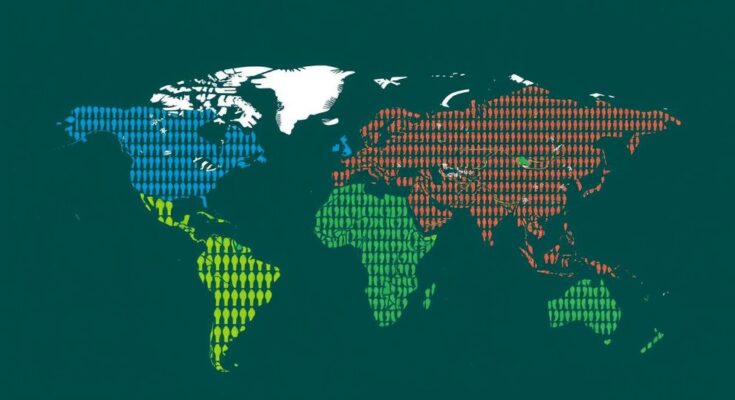At COP29 in Azerbaijan, participants have observed concerning backsliding on gender language in climate negotiations, with key countries opposing references to women’s experiences in proposals. Advocates warn this trend threatens the inclusion of gender perspectives in climate finance, which are crucial for addressing the disproportionate impacts of climate change on women and girls. Calls for renewed commitment to gender integration in climate policy are becoming increasingly urgent.
Concerns are mounting that the global climate discourse is regressing in terms of gender inclusivity, as evidenced by recent discussions at COP29 in Azerbaijan. Advocates for women’s involvement in climate initiatives assert that despite previous acknowledgments of the critical roles women play, recent negotiations have seen a reduction in references to gender and diversity. Mary Robinson, former president of Ireland, indicated that resistance from nations like Saudi Arabia, which is supported by Russia, is emboldening a backlash against gender language in climate agreements.
Historically, women and girls constitute approximately 80 percent of the population displaced by climate change, heightening their vulnerability to issues such as trafficking. Yet, male policymakers predominantly lead climate discussions, creating a disconnect between the realities faced by women and the policies formulated. The draft proposals at COP29 reflect minimal gender consideration, causing alarm among advocates. German Foreign Minister Annalena Baerbock emphasized the need for a robust commitment to integrating gender perspectives within climate finance frameworks, stating that the fight against climate change necessitates the empowerment and participation of women.
Despite some progress noted at previous summits, including a higher proportion of female delegates, advocates like Ayshka Najib express concern over the current trajectory, arguing that COP29 represents a significant setback in addressing gender issues within climate policy. Canadian negotiators also highlighted the urgency of maintaining focus on gender-related objectives, deeming any regression in policy unacceptable.
Overall, the discussions indicate a contentious environment regarding gender representation in climate negotiations, and there is a pressing need for renewed commitment to incorporate women’s perspectives in climate action.
The intersection of gender and climate change has long been a topic of important discussion within global policy circles, underscoring the disproportionate impacts that rising temperatures and environmental degradation have on women and girls. Historically, women have been recognized as vital contributors to effective climate action, yet their representation in policymaking remains low. Gender-specific strategies have been advocated to ensure that climate responses are inclusive and equitable. Recent shifts in international negotiations, however, raise significant concerns about backtracking on gender-focused policies, highlighting the necessity of sustaining advocacy for gender equity at climate summits.
The situation at COP29 underscores a troubling trend of diminishing emphasis on gender representation within climate negotiations, driven by opposition from specific nations and a broader backlash against gender-related language in policymaking. The imperative remains for global leaders to champion the inclusion of women in climate discussions to ensure that policies reflect the realities faced by the majority of those affected by climate change. A recommitment to gender-responsive frameworks is essential for meaningful progress in addressing climate crises worldwide.
Original Source: www.rfi.fr




